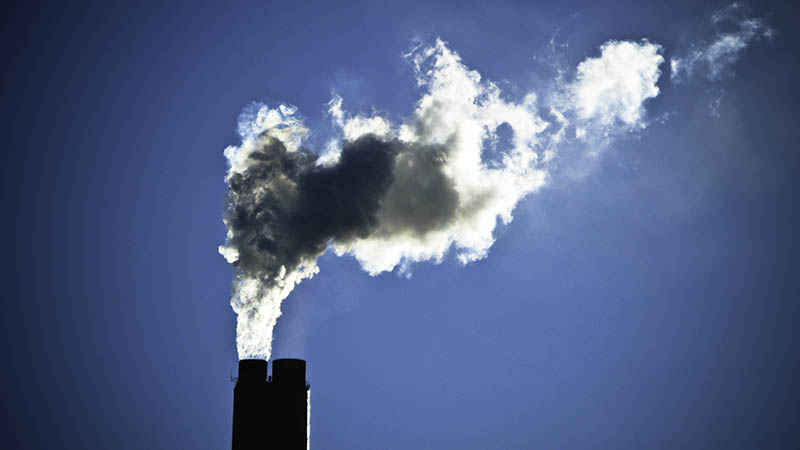The major social and environmental costs of trade have been ignored for too long and a new approach is needed

Next week, the House of Lords starts considering the Trade Bill (again). We will be hearing from most sides of the House an automatic paean to the “virtues” of trade, an assumption that more is better, a focus on creating rules to make it easier.
As the Liberal Democrats told us in the Second Reading debate, trade is “the bedrock of our political movement”. For the Conservative Lord Astor of Hever, “trade is the best route to prosperity”. For Labour’s Lord Grantchester, trade will “secure growth and prosperity”.
To point out the absurdity in praise of trade coming from the Brexit sides of the House is easy. What is also needed, however – in this age of climate emergency and nature crisis in a world gripped with inequality and poverty – is deeper questioning.
A Zero Carbon Trade and Investment Toolkit being launched today makes that case. I’ll be at the event with the Green House thinktank and Green European Foundation.
In the introduction to the Toolkit, Ellie Chowns, Green Party International Spokesperson, lays out how the “major social and environmental costs” of trade have been ignored for too long.
The Toolkit highlights many absurdities:
- Salmon accounts for 74% of our fish-trade carbon footprint. In 2019 we exported 125,000 tonnes of salmon, over half of which was flown to the USA and China. We imported almost as much from overseas: 101,000 tonnes. If we supplied domestic first and shifted exports from air to sea we could reduce transport emissions by 300-400,000 tonnes of carbon dioxide equivalent emissions(CO2e).
- Four-fifths of UK scrap is exported. Were that to be remelted in the UK, in a regionally dispersed group of renewables-powered electric arc furnaces, our islands could be self-sufficient in steel, and local economies boosted.
- In 2019 over a million tonnes of fresh bananas came by sea, with a carbon footprint of 127,000 tonnes CO2e. We flew in 20,500 tonnes of mangoes, with a carbon footprint of 250,000 tonnes CO2e – 25 times more carbon-intensive than bananas. Bring that mango as dried, canned or juice, by sea, and emissions are slashed.
The Toolkit sets out a new approach to trade, one that acknowledges it should be beneficial to all partners, and not damaging to people or planet. That’s very different to what we have today.
Business as usual is “locking in harm” – building infrastructure (like airports and sea ports) that will cause environmental damage and social destruction far into the future.
We are “buying dirty”: the pollution, the exploitation of workers, the destruction of nature is invisible on the other side of the world as a product is presented to us, plastic-wrapped, pristine, in store.
Business as usual is “rubbish in, rubbish out” – huge amounts of what is traded is poor quality, “cheap”, products, that will very soon become waste.
Much trade is pointless. As well as salmon, we’re also swapping roughly equal quantities of shellfish with the rest of the world, when we could eat our own.
The Toolkit focuses particularly on carbon emissions: the climate emergency is pressing in on us, the damage is easily measurable.
Yet even here, the British government is failing to even do the basics, the work that the Toolkit does for it.
I hear endlessly the claim that the UK is world-leading in its 41% cut in national emissions since 1990, yet have to drag from the government admissions that emissions we import show far less of a drop. We are surely as responsible for the emissions in a washing machine we import, as for one made on our shores.
But the Toolkit is not primarily about critiquing the current approach, which might be summed up as “yeah, trade, bring it on. Let’s all swap icecreams!”
It is suggesting a considered approach to what trade we want, and what we want to substitute with home production that will produce jobs, business opportunities and a chance for a real, sustainable “levelling up” of the massive regional inequalities.
What’s needed is government investment and direction, public money going into public goods rather than to boost private profits, and ensuring that products are made to last, not made for landfill.
In next week’s debate I’ll be pointing UK lawmakers towards the report, and it is good to know that today we’ll be joined from their compatriots across Europe (the Toolkit is part of a broader project also involving partners from the Netherlands and Ireland).
We’re right at the physical limits of this planet. We cannot continue with trade as usual, and there’s growing numbers of people and nations that recognise that fact. The UK needs to join them.
Natalie Bennett is a contributing editor of Left Foot Forward, a former leader of the Green Party of England and Wales and a member of the House of Lords.
To reach hundreds of thousands of new readers we need to grow our donor base substantially.
That's why in 2024, we are seeking to generate 150 additional regular donors to support Left Foot Forward's work.
We still need another 117 people to donate to hit the target. You can help. Donate today.



